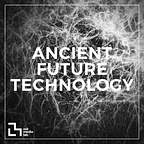[AFT Fall ’21] The Past, Present, and Future of Ownership and Land
What does the future of ownership look like?
By JS Tan
To answer this question, I want to break it into three specific parts: 1) where does ownership come from, 2) what could ownership look like, and 3) what do I want ownership to look like?
I. History of modern property rights
I believe that the question of the future of ownership hinges on whether we transition out of our current organization of the economy. In the west, the concept of a universal right to private property begins with the English philosopher John Locke who planted the seeds to how we think of the “right to private property” in most countries today. According to Locke, “men” own the products of their physical labor, thus when a “man” works the land and turns it into a space for production (i.e., a farm), he must be given property rights over the land. While this may seem sensible (if you work to build something, you should own the thing that you built) according to modern ideas around property ownership, it’s important to understand where this theory of ownership comes from in order to understand the underlying political motivations behind Locke.
The first thing to remember is that Locke’s ideas of property ownership were extremely gendered and applied only to men. Secondly, this notion of property ownership comes from the beginnings of modern liberalism, which sought to overthrow the power of the old monarchs in Europe. He — as part of the bourgeoisie — was a rising class of aristocratic elites who didn’t have the kind of political power that the monarch had. Thus it’s important to remember ideas of private property ownership aren’t “human nature” or natural, as neoliberal economics would like us to believe. Instead, these ideas of private property ownership come from this struggle between liberalism/capitalism (commerce-led economy) and feudalism. Finally, this theory of property ownership was also designed to expropriate (as opposed to exploit) non-white populations. Locke was writing in an era when European colonialists were expanding throughout America, and so his theory around productive labor as a precursor of property rights became a justification for colonial expropriation.
II. Socialism or barbarism
Locke’s ideas around private property ownership have created the foundation for how we think about ownership in our current economic system — capitalism. The idea that anyone can own property may seem egalitarian, and natural even, but it’s worth remembering that it comes from a history that is rife with contradictions. With this in mind, what can we say about the future of ownership?
In this age of ecological crisis, extreme inequality, and rising nationalism, I think about ownership through the lens of Rosa Luxemburg’s famous phrase: “As things stand today capitalist civilization cannot continue; we must either move forward into socialism or fall back into barbarism.” Today the very rich own a vast majority of everything that we have on earth. We can either continue down this road into barbarism where the super rich will militarize and continue to hold on to the property that they own (Fun fact: private armies/police forces is a budding industry!) or we can radically change how we think about ownership and how we relate to the land that we live on.
This quote sticks out to me because it shows the impossibility of capitalism’s coexistence with a sustainable future. This means that property rights, on which capital accumulation is reliant on, must be abolished in order to transform our society.
III. A new theory of ownership
Instead of holding on to the kind of property rights that Locke conceived, we — democratically and globally — need a new way to relate to land and property. Thus we need a new theory of ownership. However, such a theory, especially as it pertains to land and our ecology, should not be written without the consultation (or even leadership) of indigenous people who have always maintained a healthier and more sustainable relationship to land.
However, for the purposes of this writing assignment, I propose the following: that ownership is to individualism as coexistence is to collectivism. I believe that if we were to transform from a society that prizes the individual to one that fundamentally sees itself as collective, our relationship to land (and nature), will also be transformed from one of ownership to one of coexistence.
That is not to say we shouldn’t be proactively changing our relationship to land and nature at an individual level — these efforts are certainly useful and can help us progress towards imagining new relationships to land and nature. However, I believe that the larger task at hand is to transform how our societies are organized.
JS Tan is a research assistant with the Viral Communications group at the MIT Media Lab.
